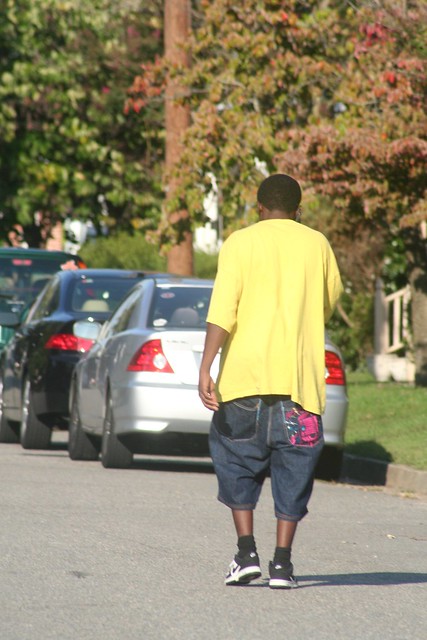
As indicated in this post’s title, this blog post is a continuation of Part 1. If you have not yet read the student essay posted in Part 1, you may want to so that the commentary in this post will be more meaningful.
Overall Grade
Gerard’s essay is in pretty good shape, but is still in need of both revision and editing. The fact that it needs revision is what makes the paper incapable of earning an A. Very few essays will be flawless and a grade of “100” does not indicate perfection (although there are some professors who never give a paper higher than a “99” for principle’s sake). What an A grade does demand are errors on only the editing level: grammar, spelling, and word choice. Revision requires changes in the content and organization of an essay, and are therefore more drastic and costly in terms of grade points.
That said, Gerard’s paper is a solid B to B+ in my book. I tend to grade more leniently than others, though, as I only count off once for grammar and spelling errors instead of for each and every time a particular error occurs. I do so to encourage students to tackle more advanced sentence structures and to try and incorporate new vocabulary in their writing, but I understand why other teachers prefer to mark off for every instance. Because Gerard’s professor was stricter in his grading of errors, Gerard earned a C on this paper.
Revision Errors
Because revision should come before editing in the writing process, I’ll look at this paper’s content errors first. There aren’t that many issues, but they have a big impact on how focused the essay is.
- The first paragraph in any piece of writing is the most critical. The introduction has to set the tone and focus for the rest of the essay and, unfortunately, Gerard’s doesn’t. The reason for this is the lack of a thesis statement. If you read the introduction in isolation, you’d think the paper were going to be about the “N” word. That’s clearly not the case. This paragraph needs one more sentence that tells us that the paper is about how sagging pants and socio-economic status (i.e., low class and ignorance) are linked.
- The third paragraph includes the sentences, “It’s too bad that they do not realize that they are sending a bad message to the people who have made this trend what it is. These softies from the suburbs do not realize that they are being laughed at by real thugs.” It’s an interesting direction to take, but not one that fits the scope of the paper. As the essay discusses how sagging is tied to ignorance, painting the trend in a positive light by linking it to real street-smarts undermines the main point. Gerard had a wealth of knowledge about the rougher part of city-life and I want him to know that his experiences make him an expert able to write authoritatively on the topic. What makes a person a real “thug” is just a topic for a different paper, one that would no doubt be fascinating and well-written if Gerard ever wanted to pen it.
- The use of the word “Thug(s)” diverts the focus of the paper and introduces a potentially confusing new term. By changing every instance of the word with “Sagger(s),” the paper gains clarity.
- The 5th paragraph should actually be the 3rd paragraph as it introduces the history and background of the sagging trend.
- The 4th paragraph should start with “Inner-city and suburban saggers…” and the 6th paragraph should start with “For saggers, regardless of location,…” to make the organization of the main points clearer.
- The conclusion needs to tie-back to the “N” word, the idea the paper first began with.
While these changes aren’t severe, they would make a huge difference in how smoothly the paper flows. These errors would all have been spotted easily by outlining the paper. As the person grading it, I outline it myself as I go along to see if I can find the main point of each paragraph and their progression. Outlining doesn’t take long and really makes such a world of difference in keeping an essay focused.
As it stands, the paper starts strong but loses focus after the first page. That’s not surprising and quite normal, actually, as most high-schoolers have never been asked to write a paper longer than two pages. I could wax poetic over what a travesty that is (While some teachers are to blame, some aren’t; I was ordered to stop assigning essays when I taught high school because a strong essay wasn’t required to pass the TAKS test), but ultimately it is what it is.
Editing Errors
While I will mark and label every error I see as I grade a paper, I only choose the three most prevalent errors to focus on in my comments. Fixing a couple of grammar and spelling problems at a time and keeping an eye out for them in the next paper will eventually lead to error-free papers when the next most-encountered errors are addressed, and so on. In this paper, Gerard has several errors that need addressing.
- Semicolons join two closely related independent clauses. Examples of misused semicolons in the paper are: “From what I have grown up with in Southwest Houston; black, white, brown, and yellow people…”, “Thugs only have one thing on their minds; being cool”, and “But by this time, unless they come to their senses, and realize that they can still make a change for the better; they pass up on those opportunities.”
- Misspelled word: “selling” not “sailing.” When I first read the paper I thought perhaps Gerard knew drug terminology that I wasn’t aware of. It took my mom pointing out the misspelling for me to realize he had used spellcheck and hit “ok” to all changes without checking that they were the correct ones.
- Excessive comma use. Gerard uses commas quite a bit in this paper in places they don’t belong. For example, after almost every instance of “Although” he inserts a comma, even when the clause isn’t finished yet! Take this sentence for example: “Although, I have noticed a decline in the number of blacks and Hispanics who wear their pants below their waists, this style of stupidity is still going strong.” If you read the sentence out loud, you should feel yourself NOT pausing after “Although” as the phrase isn’t finished until “waists.”
- Orphaned quotation. While not a repetitively occurring error, dropping a quote into a paper without integrating it into the paragraph is a big no-no. The quote in this case is “Rappers such as Snoop Dogg and Tupac Shakur promoted the style in videos and on CD covers” (Glanton). Prefacing the quote with “This mimicry has not escaped the eyes of the public as Glanton writes ‘Rappers such as…..’” would let the reader know why the quote is being used and how it contributes to the paragraph’s main point.
- Ad-Hominem Fallacies. There is absolutely nothing wrong with being passionate about a topic, but name-calling doesn’t belong in academic papers. Not because it’s “mean” (“honest” would be the word I know many students would use), but because it actually makes your paper less persuasive. Rhetorically, it’s a bad move. Sentences like “Since these people are seriously stupid they fail to realize the important things in life…” hurt your case by placing people who either take part in sagging or have friends or relatives who are saggers on the defensive.
Strengths
It may appear that I’m being very hard on poor Gerard’s paper, but it’s only because I know how much better his work can and should be! This paper is so close to being an A paper and that’s the grade I know he wants and the one I want to give him. He has to earn it fair and square, though, and by pointing out the errors in his early essays, it’s my hope he’ll fix them for later essays and work his way up to an A grade.
This essay has a great deal going for it. First of all, I LOVE the way he used the fact that “Saggin’” spells “Niggas” backwards to tie ignorant language with disheveled appearance. His paper does not link Black people or Hispanics only to the trend; rather, it speaks about the type of socio-economic classes most vulnerable to the trend and the life-style that comes with it. This sentence states the link beautifully: “In much the same way the ‘N’ word is a misrepresentation of the ‘proper’ way of saying the word ‘Negro,’ so is the way adolescent males are currently choosing to wear their pants.”
This paper is and always will be one of my favorites because Gerard reached past the stale, over-used topics his peers were writing about to find a topic that was relevant to himself. To paraphrase a popular saying: He aimed for the moon and fell among the stars. I wonder how he’s doing these days. The last time I heard from him was several years ago when he’d e-mailed me to let me know he’d been admitted to Texas A&M University. I forwarded that e-mail to everyone I knew, I was so proud of him!
He was the kind of guy one would call “rough around the edges” but he surprised me with how imaginative and well written his essays were. I took one look at his silly-looking gigantic sneakers (those big Air Jordan kind that seem to be so popular among kids), baggy basketball jersey (he wore one to every class!), and flashy necklaces that hung to his waist and thought to myself that I was going to have to teach him how to write separate paragraphs in an essay. I still remember how shocked I was and how embarrassed to have stereotyped him I felt when he turned in his first essay!
He sat in the middle of the front row every class day next to a Hispanic student with a shaggy mop of hair on his head that he was constantly brushing out of his eyes. Believe it or not, that guy’s name was Gerardo. Ha! Gerard and Gerardo sat front and center side by side every Tuesday and Thursday. Those two made me love coming to class. I only had them for one semester, but 5 years later I’m still thinking of them and getting teary-eyed.
Photo credit: CellarDoorFilms





















